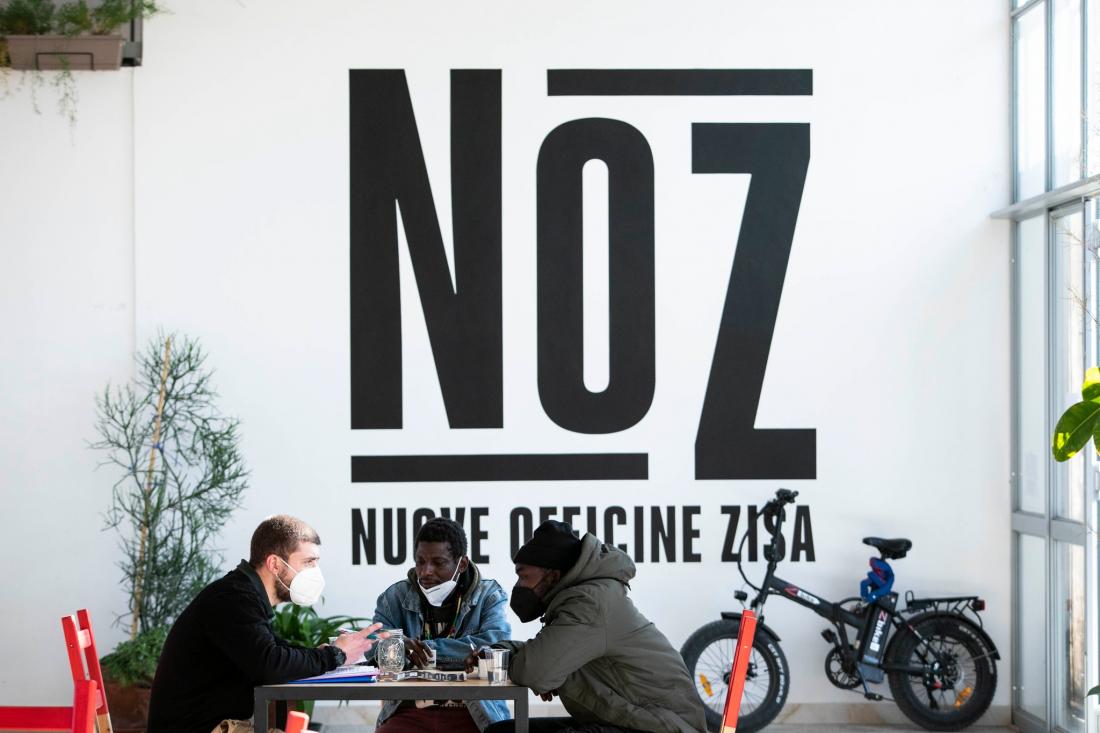MoreThanAJob in Italy supports a new business model for street sellers

A training path to recover craft skills by combining tradition and digital techniques for the development of social enterprises and a new business model for street sellers.
A path that has been activated through Artigianato Interculturale - one of the two local initiatives co-funded by MoreThanAJob - and consisting of:
- Training in traditional and digital crafts, particularly through the use of biomaterials
- An orientation desk for the start-up of social enterprises and ethical business management
- A dialogue with the Municipality of Palermo for the establishment of an Observatory on street selling
These activities take place at NOZ - Nuove Officine Zisa, a place managed by the Centre Ricerche Economiche e Sociali per il Meridione (CRESM) with the aim of supporting the recovery of artisan skills. Through its craft workshops, NOZ wants to combine the tradition of craftsmanship with digital techniques with the ultimate goal of encouraging the development of social enterprises.
We talked about it with Guglielmo Sano, cultural mediator at CRESM, the organization that coordinates the initiative.
Where did the idea for the project come from?
Street sellers, the final beneficiaries of the project, often do not recognize the potential of their craft skills, particularly those who have a migrant background. They often take for granted these skills because of the difficulty to recognize them as useful in the labour market and in the territory.
We chose the street sellers also because of their history, which in Palermo is made up of movements to demand not only labour rights, but also civil rights.
What challenges have you encountered up to this point?
There are three main challenges: mistrust, time and language.
The mistrust is usually towards someone who is proposing something new, especially to communities that are often very closed, and because of previous experiences.
Time represents a recurring element in the difficulties encountered in taking part in the training path, because it is often difficult to fit in between work and study commitments.
Language is an obstacle because we often work with people who do not know Italian. Even though, manual skills help overcome such barriers.
How do you try to overcome the mistrust you encounter?
By pointing out quite directly that this is an opportunity to improve one's economic conditions and, at the same time, do something for the community, because the community is a fundamental factor.
We try to nip distrust in the bud with the contribution of those within the communities who play a leadership role, being it charismatic, experiential, religious.
By involving people within each community who can convey what we are doing, we count on limiting the drop out and increasing the return rate at the end of the course.
Regarding the orientation desk, who is it addressed to and what kind of services delivers?
The desk wants to support the development of realities that, on the one hand, allow the livelihood and, on the other hand, the full expression of their creativity to craftsmen, to those who want to become such and to those who want to turn a hobby into a job.
At the desk, people ask for support in facing the bureaucratic machine that often frightens people with migrant background. The main barrier is the language that bureaucracy complicates by making it an almost insurmountable obstacle for some people.
In this, what role plays the collaboration with the public administration?
CRESM conducts a broad and deep dialogue with the public administration and, in particular, with the Department of Social Activities and the Department of Productive Activities of the Municipality of Palermo.
The direct relationship with the former is fundamental, for example, in reaching the beneficiaries and their families.
Dialogue with the latter can help in the process of modifying regulations which, although simplified over the years, represent a difficult obstacle to overcome.
We would like to elaborate a vademecum that would allow all to access the procedures to start a business in a faster and more effective way.
We are talking about the elements that should be included in the vademecum. It is a process that we imagine will take time because it is based on dialogue among different actors.
How do you envision the sustainability of this path?
We would like to create a network of craftsmanship, of entrepreneurs who are able to propose a new business model that can attract interest and give way to a new sector related to the recovery of traditional skills combined with the use of digital tools. As well as to allow the development of associations and companies that aim to involve their community.
To know more about the MoreThanAJob activities going on in Italy, send an email to giulia.tarantino@cesie.org
Follow us on the project website and on our social channels (Facebook, LinkedIn, Twitter) to find out more about the local initiatives of MoreThanAJob.







